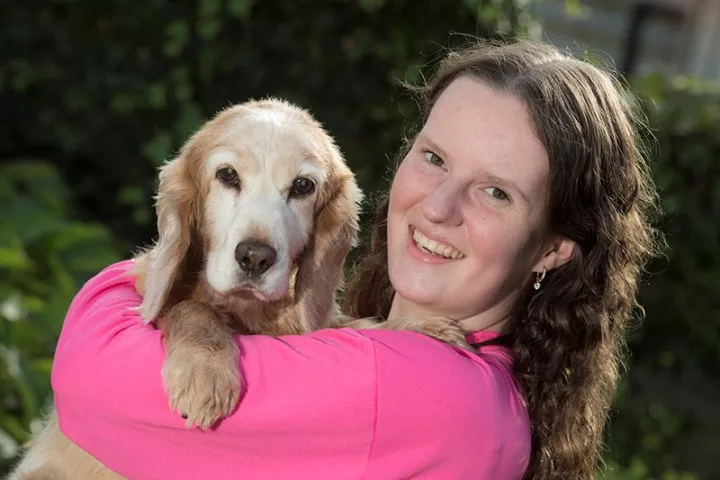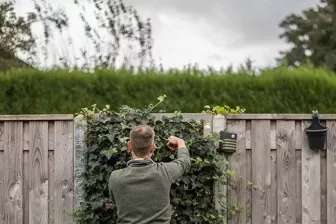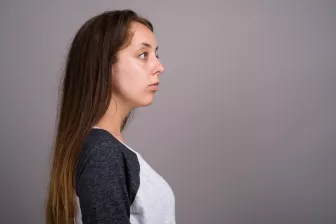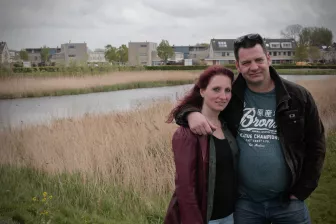Two weeks after his 15-year-old daughter was hit by a truck, Francel wanted to get in contact with the driver. “I heard he was on sick leave. I proposed to meet with him, we would both feel better after that.”
Intensive care
It was touch and go with Daisy. She was in the intensive care unit for a long time, and they had almost given up on her. But eventually she made a miraculous recovery. Her short-term memory is still not optimal, she can’t smell and is easily overstimulated. But she’s going to school again and has a job. “I can do everything,” she says. “She had an angel on her shoulder,” her mother Mariëtte comments.
Daisy can’t remember anything about the accident. She can’t remember that she was on the phone with her sister Kayleigh shortly before it happened, and she can’t remember that she then crossed the road with her bike, that a truck was coming at her, and that she made eye-contact with the driver at the last second.
She also doesn’t remember anything about her time in the hospital. She was in the intensive care unit for a month. She can only remember things from when she was in the rehabilitation center. She got to go home after three months.
Postcard
When they got the message from Perspectief Herstelbemiddeling that the driver wanted to get in contact, the family was very open to the proposition of restorative mediation. Francel: “I immediately said: I would like that very much”.
At this point, Daisy was already doing a lot better. “I really wanted to know how he was doing,” she says. “I felt very guilty.” She decided to send him a postcard in advance. She let him know how she was doing, and wrote: “I’m very sorry for you that the accident happened. I wish you well.’
The driver sent a postcard back saying he appreciated it a lot, and that he still thought about the accident often.
Eventually there was a meeting at the office of Victim Support. “It was nice to see him,” Daisy says. “Now I could see who the driver was. He was a really nice man.”
Guilt
“We were able to hear each other’s stories,” Francel recounts. He was shocked to hear that the man had gotten no support. His family got all the support after the accident, not just for Daisy. Francel also underwent treatment to get rid of the nasty images from the hospital he’d kept in his head.
Francel was also surprised to hear that the driver was kept in the dark for so long, and to hear about what he had been through. “After the accident he was taken to the police station. We were told he was offered victim support, but that turned out not to be the case.”
The driver was plagued with guilt, even though the accident was not his fault. Francel does not blame him for anything. “It’s called an accident for a reason. It was an accident.”
Francel, Daisy's father: "We could listen to each other's story"
"It happened"
He tells his story in hopes that the police will communicate better with the people involved in an accident, and more quickly refer people to Perspectief Herstelbemiddeling. He was really happy with the mediation. “It’s good that there’s someone there to help start the conversation.” As far as he’s concerned, the conversation should’ve taken place much earlier.
Daisy no longer takes the same way home from school. “Because you have to cross the road there. It’s not smart.” She takes a different route. “I’d rather take a bit longer than have another accident.”
The family picked up their normal lives again. “It happened. There’s nothing you can do about it,” the girl decides.
Text: Monique Bloeme
Contact with the other person helps!
Want to get in contact with the other person after a traffic accident?



